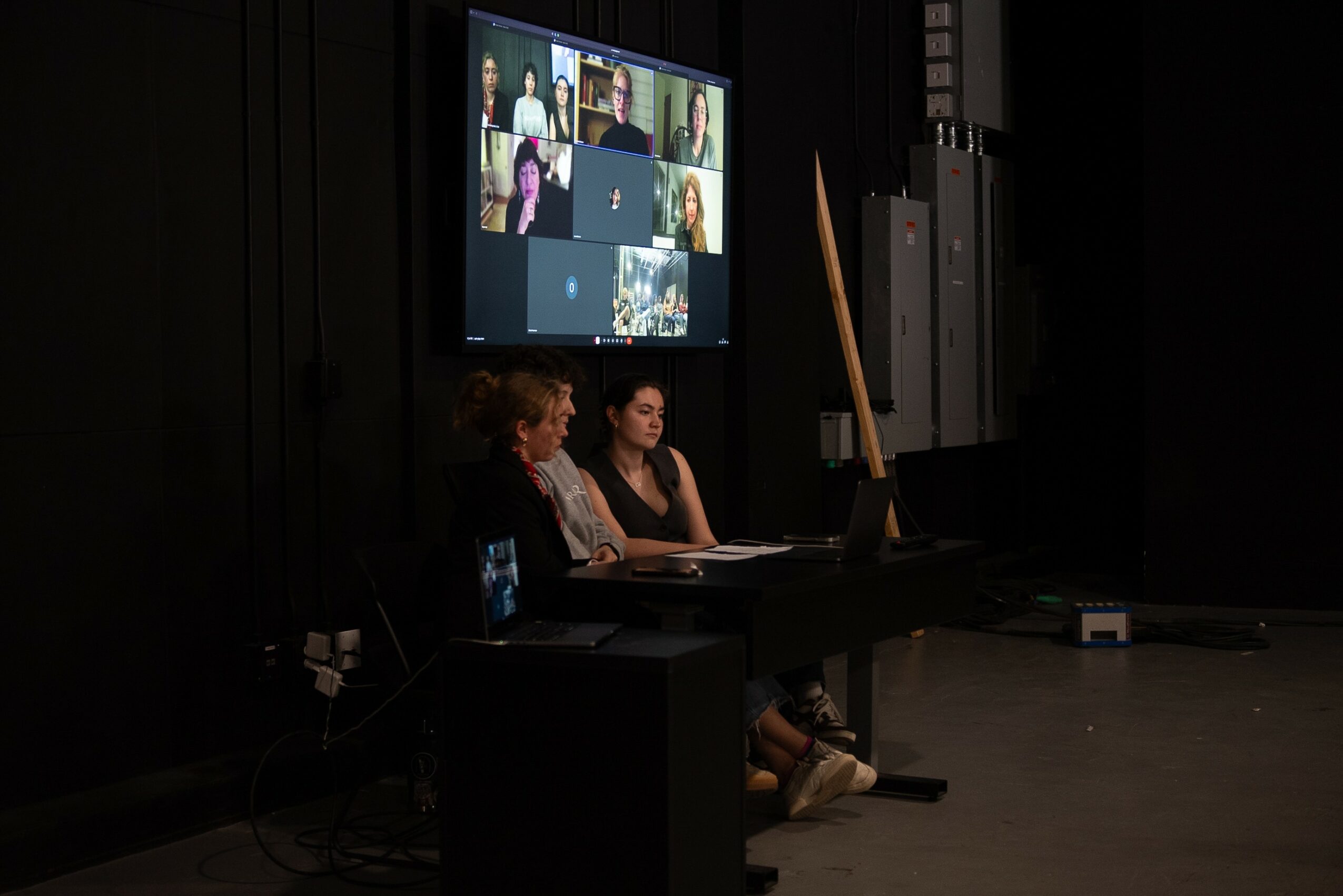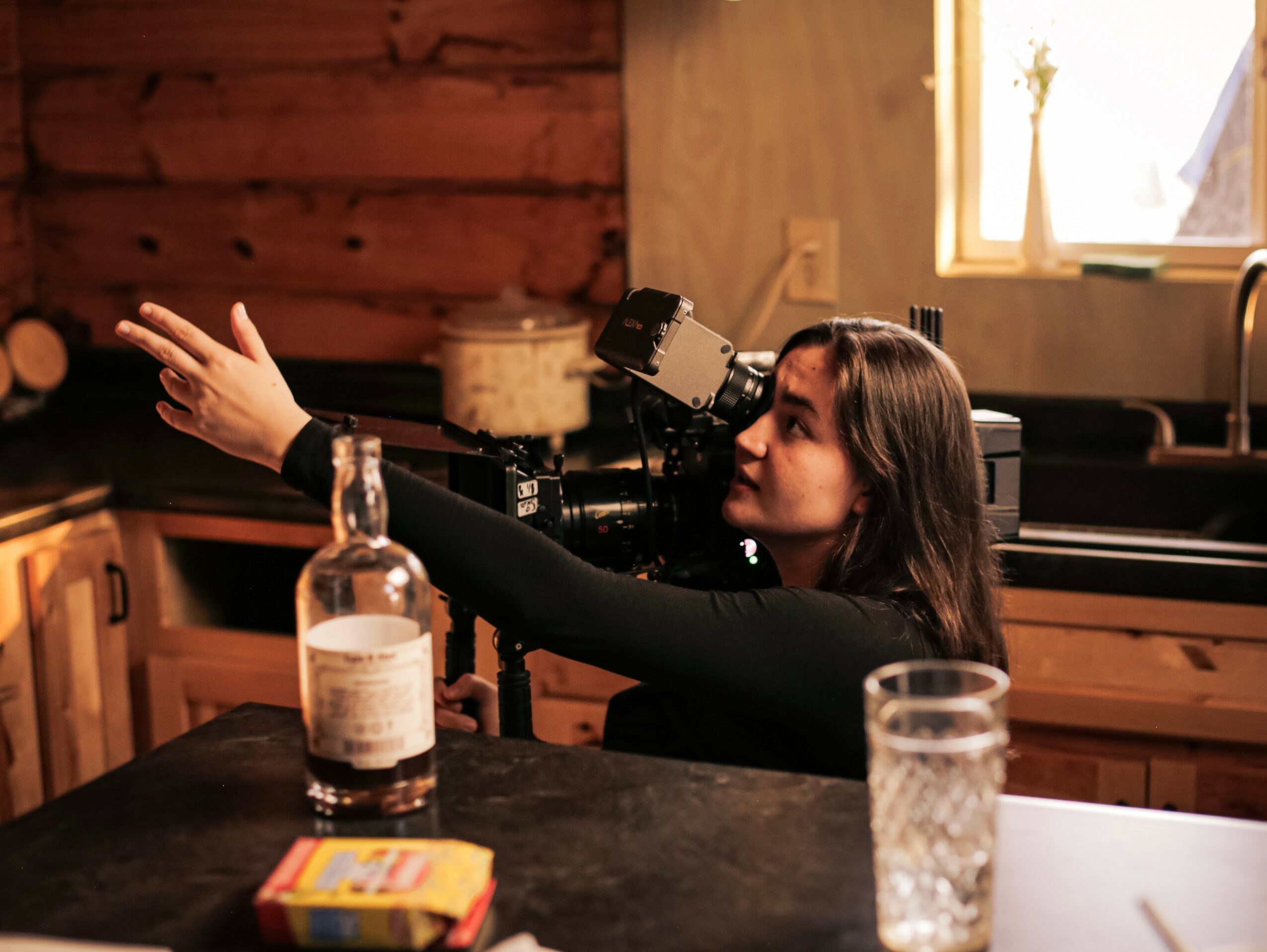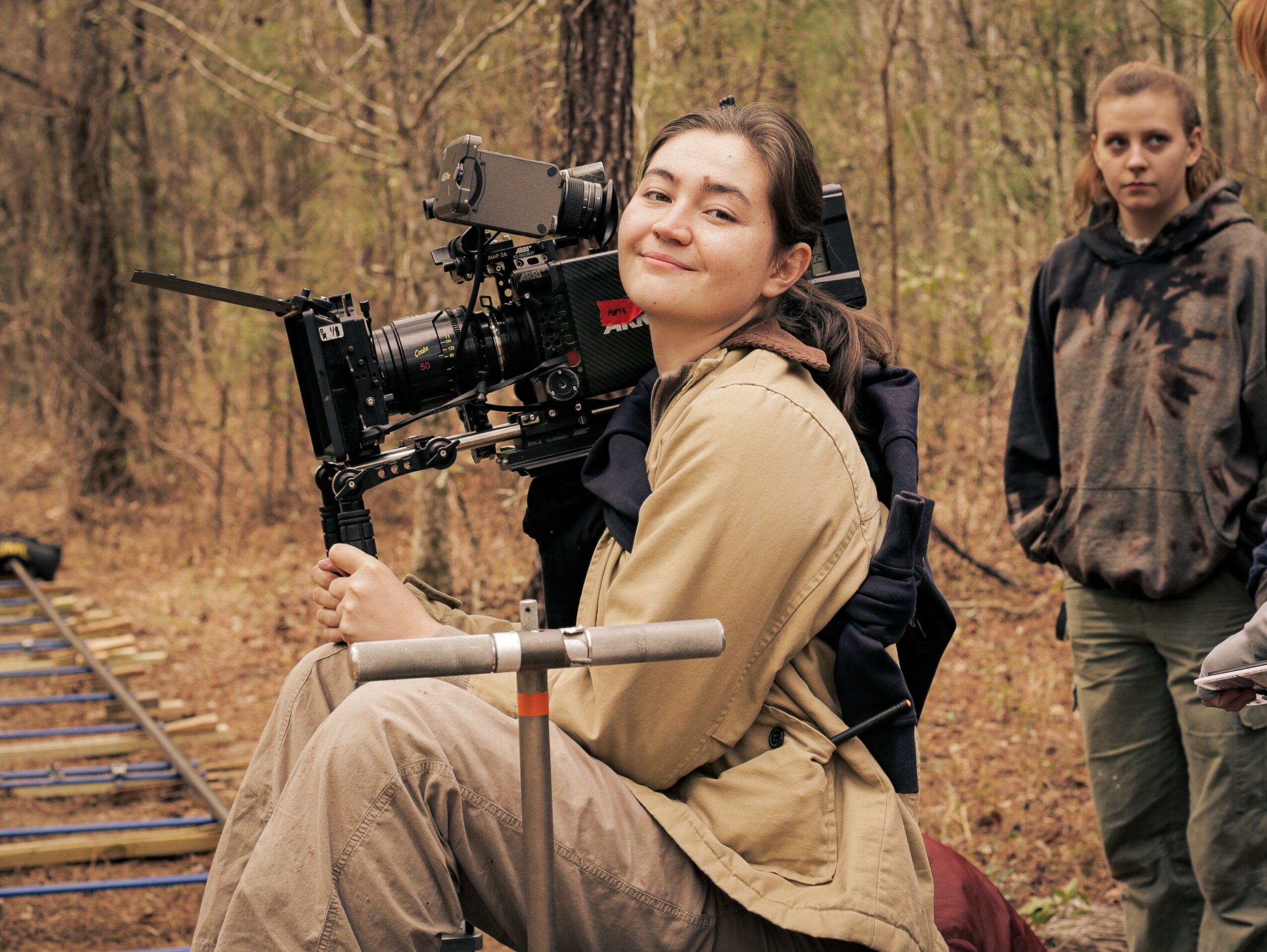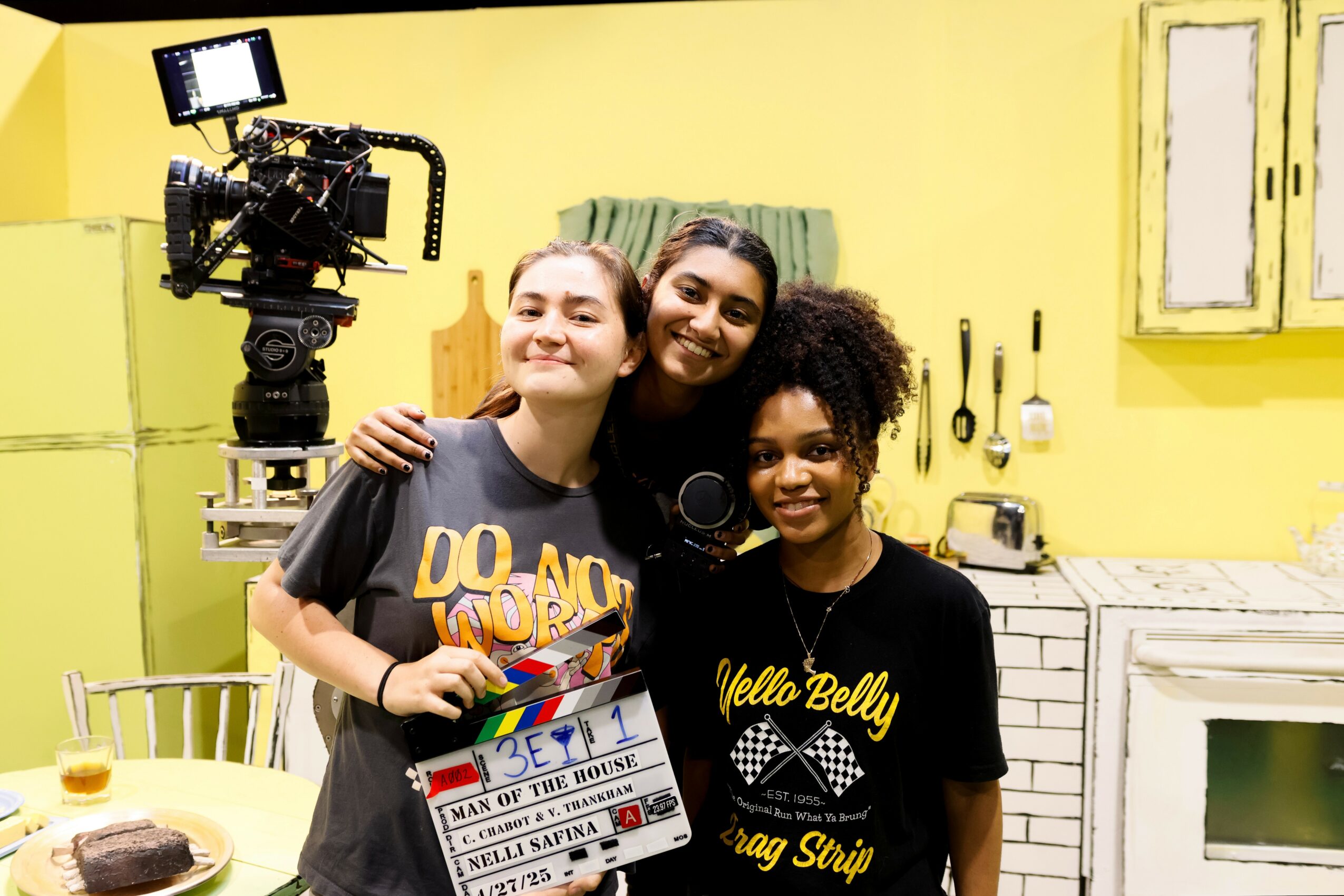

Today we’d like to introduce you to Nelli.
Hi Nelli, thanks for sharing your story with us. To start, maybe you can tell our readers some of your backstory.
My name is Nelli Safina. I’m originally from Kazan, Russia, and moved to the U.S. at 15 to pursue filmmaking at Idyllwild Arts Academy, an art high school in California. It was there that I discovered my deep passion for cinematography. Since then, I’ve contributed to over 40 productions around the world. My work has been showcased at AMC Theatres, Los Angeles Fashion Week, and the TCL Chinese Theatre. After graduating from Idyllwild with a dual diploma in Film & Digital Media and Cinematography, I continued my studies at SCAD, where I’m currently a rising junior majoring in Film & Television with a minor in Cinematography. Driven by a strong belief in collaboration, I founded and now lead the SCAD Cinematography Club under the guidance of acclaimed cinematographer Alan Caso, ASC (Six Feet Under, Why Women Kill). The club has grown to over 100 active members and regularly hosts events with top industry professionals such as Catherine Goldschmidt (The Last of Us, House of the Dragon), Larkin Seiple (Everything Everywhere All At Once), and Todd Banhazl (Winning Time). We also collaborate with major companies and organizations like Cineo Lighting, ETC Connect, ICF⁺C, and MBS.
Would you say it’s been a smooth road, and if not what are some of the biggest challenges you’ve faced along the way?
It’s definitely been a journey filled with both highs and lows. I arrived in the U.S. in 2020, right at the start of the COVID lockdowns, which was a difficult and isolating introduction. Beyond that, adapting to a new culture, navigating everything in a second language, and being far from my family has been challenging—especially during important moments I couldn’t share with them. On top of that, the constant bureaucracy and paperwork involved in being an international student can be overwhelming. And of course, working in an industry that has traditionally been male-dominated comes with its own set of obstacles. But things are changing, and it’s exciting to be part of that shift. The door feels more open now than it ever has before.
Can you tell our readers more about what you do and what you think sets you apart from others?
I’m a rising cinematographer with a primary focus on narrative short films. I’ve known I wanted to work in film since I was nine years old—it came to me instinctively. Back in Russia, like many young creatives, I gathered my classmates and friends to shoot short films. I also did freelance social media content, videography, and ran a YouTube channel. At the time, I believed I wanted to be a writer/director. I even ran an online writers’ community with over a thousand readers. I didn’t fully understand how a film set worked, and to me, directing seemed like the only way to bring a vision to life. I was wrong—and in the best way. Two weeks after arriving in the U.S., one of my professors asked me to be the cinematographer on a short film. I had never shot anything professionally before, but as a new international student, I was eager to prove myself. The film, about the relationship between two teenage sisters, went on to screen at the Women Connect Festival. That project changed everything for me—it made me realize that cinematography is my language. It’s how I communicate with the world, and there’s nothing else I’d rather do. Since then, I’ve worked on many projects I’m proud of. One that was particularly meaningful was Look Up, directed by Arsenii Nevzorov—a short film about an aspiring astronaut. It screened at the All American High School Film Festival at AMC 25 in Times Square. Another personal project was No Tears in This Household, a short I wrote and directed inspired by my brother’s struggles. It screened at multiple festivals focused on addiction and mental health and was also shown at AMC Theatres. More recently, I’ve shot several significant projects at SCAD. Slaughter by Autumn Tapley explores the topic of sexual harassment, while Mourning Dove by Tessa Morell examines a strained father-daughter relationship through the lens of hunting and butchering. The latter premiered at SCAD Showcase this May. Another notable project was a narrative music video—a satirical take on masculinity—co-directed by Callista Chabot and Vaishnavi Thankham for the Atlanta-based band Wieuca. What sets me apart, I believe, is my commitment to collaboration. When I’m on a project, I’m all in—100%. I’m there holding my director’s hand, supporting the crew, and advocating for my team. I strive to be a strong leader who knows what she wants, has a clear vision, and is passionate about telling stories that matter. That passion led me to found the SCAD Cinematography Club—a space for students to connect, collaborate, and support one another rather than compete. I’m also deeply committed to advocating for female cinematographers, pushing for equal opportunities and representation behind the camera. My ultimate goal is to become a working, respected Director of Photography—someone who continues to elevate stories through meaningful, intentional visual language.
Networking and finding a mentor can have such a positive impact on one’s life and career. Any advice?
I really believe that if you want something you’ve never had, you have to be willing to do something you’ve never done. I’ve learned that many of the people I admire in the film industry are more approachable than I expected—especially because so many share the same passion and excitement for storytelling. For a lot of seasoned professionals, seeing a young person dream big is a reminder of their own beginnings. So much of progress comes from pushing past discomfort and just putting yourself out there. “Fake it till you make it” isn’t about pretending to be someone you’re not—it’s about trusting your instincts and projecting the confidence you’re still building inside. Most of the time, people won’t know exactly how much you do or don’t know—they’ll respond to your energy. I’ve learned to embrace the idea that the worst someone can say is “no.” I’ve reached out to many mentors, artists, and companies—whether for support with the SCAD Cinematography Club or for personal growth—and while not every message gets a reply, many do. Film is a collaborative artform. You can make something good on your own, but to make something great, you need a team of like-minded people who share the same passion and love for the craft.
Contact Info:
- Instagram: scadcineclub, nelli_safina
- Other: [email protected], [email protected]



















